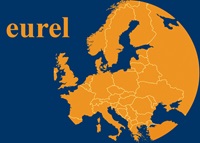Since the 1980s, complementary and alternative therapies have gained increasing popularity across Europe (Luckmann, 2014). However, this growth has also been accompanied by controversies surrounding these spiritually-oriented healthcare practices. From the 1990s onwards, several European countries have labelled these practices as “therapeutic cultic deviations” in the discourse of institutional and advocacy groups (Gicquel, 2019). While the institutionalisation of the “fight against cults” has been explored in political science and legal studies, particularly in Belgium and France (Ollion, 2017; de Cordes, 2006), the effects of this labelling on the targeted groups remain largely unexplored. Sociological analyses of policies controlling the “cultic phenomenon” have generally been limited to national perspectives (Luca, 2011).
This paper aims to investigate the sociological dynamics behind the Europeanisation of national controversies over “cultic therapeutic deviations” since the 1990s. The anthroposophical medicine movement, chosen as a case study, illustrates the divergent reactions to these accusations across European countries, particularly in France and Switzerland. From a methodological standpoint, this presentation will highlight the contribution of Science and Technology Studies and Pragmatic Sociology to the study of social conflicts involving new religious movements and public actors. It draws upon a corpus of semi-structured interviews with practitioners of anthroposophical medicine in France, Switzerland, and at the European level, as well as with actors engaged in the fight against cultic deviations. It also relies on participant observation conducted at working meetings and international conferences.
The first focus of this research examines the performative effects of the “European shift” on the mobilisation of therapeutic esoteric groups. This paper will demonstrate that Europeanising a cause offers a political opportunity for these groups, often labelled as deviant (Becker, 1963). By refusing to adopt the term “cult” as a subject of public action, the European Union has become a resource-rich space for these movements (Willaime, 2012). Since the 1990s, anthroposophical medicine has engaged in lobbying efforts at the European level, where institutions offer symbolic and legal resources that are unavailable at the national level. This presentation will also explore the impact of this investment in European arenas on the practices and representations of anthroposophical medicine actors, paying attention to the sociological characteristics and careers (Becker, 1963) of those involved.
The second focus of this research emphasises that Europe is not merely a political resource for these groups, but also a new arena (de Blic, Lemieux, 2003) where the stakes of the controversies over alternative therapies are redefined. By engaging with European political spaces, anthroposophists encounter an “anti-cult” network seeking to universalise its cause. This study will also highlight strategies of exchange between representatives of national institutions responsible for managing the sectarian phenomenon. Ultimately, the relocation of the controversy to new European arenas results in the confrontation of different models for regulating esotericism. These interactions reveal the complexity of strategies aimed at standardising the “fight against cults,” with framing (Gamson, 1985) varying significantly depending on the actor.

 PDF version
PDF version
